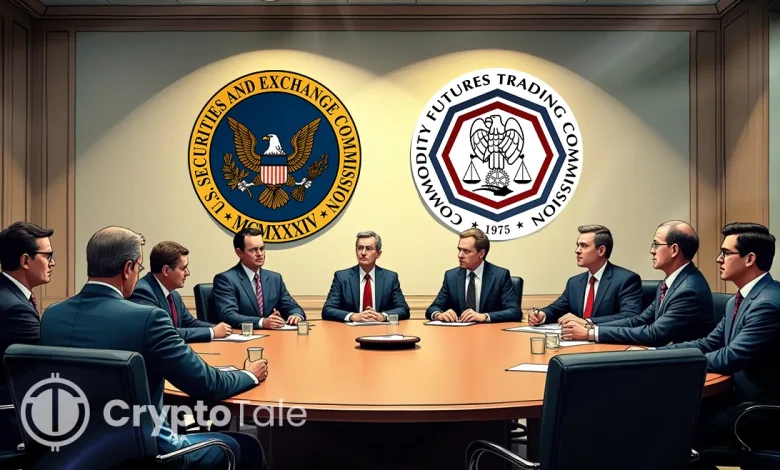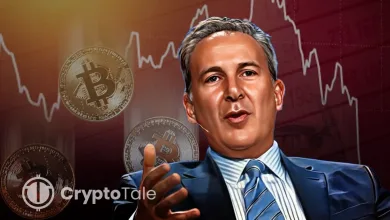SEC-CFTC Roundtable Paves Way for Unified Market Regulation

- SEC and CFTC held their first joint roundtable in a decade to pursue regulatory harmonization.
- Crypto policy took center stage, with leaders stressing unified rules for digital assets.
- Regulators warned fragmented oversight could push innovation offshore and stall U.S. leadership.
The joint roundtable event between the U.S Securities and Exchange Commission (SEC) and the Commodity Futures Trading Commission (CFTC) has sparked several reactions globally. The leading regulatory bodies in the U.S. shared the stage to emphasize harmonization in crypto policy. The meeting, the first in more than a decade, signalled a shift toward unified oversight across securities, derivatives, and digital assets.
Focus on Collaboration, Not Consolidation
SEC Chair Paul Atkins opened the session with a clear message, stating that the agencies are not pursuing a merger, but coordination. “Our focus is harmonization, not consolidation,” he told attendees. He emphasized that the decision to merge would rest with Congress and the President.
Atkins said the era of duplication, conflict, and uncertainty had burdened markets for too long. He described how innovators faced conflicting rules that forced them offshore, arguing that fragmented oversight locked up capital and delayed new products.
CFTC Acting Chair Caroline Pham reinforced the same point. She dismissed speculation that the CFTC lacked momentum and highlighted enforcement actions and regulatory measures taken under her leadership this year. “The CFTC is alive and well,” she told the audience.
Both leaders stressed the goal of building a framework where oversight is seamless. The agencies aim to reduce duplication while preserving investor protections. The sentiment, they said, marks a new chapter in U.S. financial regulation.
Crypto Takes Center Stage
Crypto policy quickly emerged as a top priority during the discussions. Atkins said, “Crypto is job one.” He emphasized the importance of giving digital asset firms a clear path across both securities and commodities oversight.
Pham echoed the urgency, calling it “a new day” for cooperation. She said the turf war between agencies is over. The joint effort comes as Congress considers a market structure bill. The proposed legislation could assign broader digital asset responsibilities to the CFTC.
The panels included executives of major crypto firms, such as Kraken and Crypto.com. They pointed at the challenges of navigating between two regulatory regimes. Their appearance highlighted how crypto has become a major concern on the regulatory agenda. Atkins added that asset tokenization is another major focus. He said regulatory guardrails could take one to two years to finalize. But he described the potential as “endless.”
Related: SEC & CFTC Propose 24/7 Crypto Trading for U.S. Markets
Implications for Markets
The roundtable arrived at a critical time as the U.S. faces growing competition from foreign markets where unified frameworks attract innovation. Atkins warned that without harmonization, America could lose its leadership role. He said decades of fragmented oversight had already driven novel products abroad.
Industry veterans noted that regulatory uncertainty had stalled launches of innovative products. Many entrepreneurs built offshore structures to escape the U.S. system. Officials now want to reverse that trend.
Former CFTC leaders, including J. Christopher Giancarlo and Jill Sommers, moderated panels. They encouraged the agencies to learn from past missteps. Participants discussed how clarity could unlock growth without compromising consumer protection.
The event also came against the backdrop of political uncertainty. Partisan disputes in Congress threaten a potential government shutdown. A shutdown would halt progress on the market structure bill. Still, both Atkins and Pham pledged to continue agency coordination regardless of political delays.
Atkins closed the session by framing the stakes. “We are at an inflection point,” he said. He noted that choices made now will shape U.S. leadership in the digital age. He pledged to ensure the next chapter of innovation is written in America, not abroad. The roundtable ended with consensus. Both regulators agreed the future requires unity, not rivalry.




